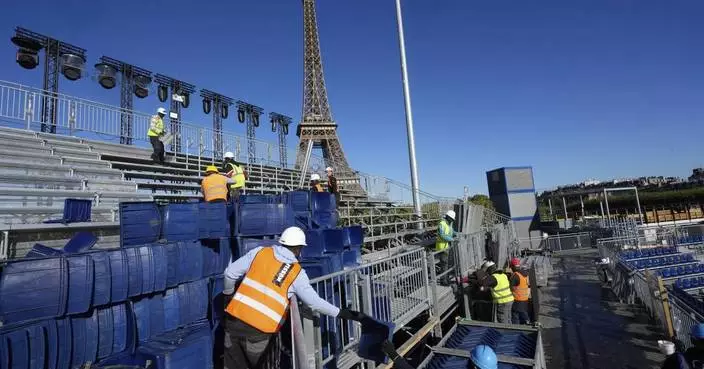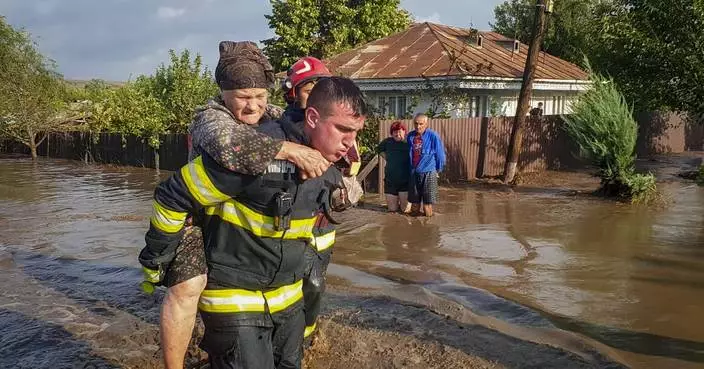CHICAGO (AP) — Advocates for domestic violence survivors in Illinois celebrated earlier this month when Gov. JB Pritzker signed a bill into law making it easier for those who are incarcerated to get reduced sentences.
House bill sponsor Rep. Kelly Cassidy was among those cheering. First elected in 2011, she has since written legislation designed to help survivors of gender-based and domestic violence, including the resentencing bill that was signed into law in August. The idea is that women who received harsh sentences without a court hearing about their histories of abuse should get an opportunity to tell their stories in court and potentially be resentenced.
“We can write all the laws in the world but until we start taking women’s lives seriously and valuing them and believing them, we’re going to keep having more tragedy,” Cassidy said.
Illinois is taking this view into account with a series of new laws. Only New York and California — and now Oklahoma — have comparable resentencing statutes, although efforts to change laws are underway in several other states. Since the laws involved reducing sentences, tough-on-crime lawmakers remain hard to convince.
But Illinois women’s advocates have had success getting laws passed and the state’s become sort of a laboratory, Cassidy said. “We’ve now figured out how to do it and could easily share it across other jurisdictions.”
Cassidy, who had herself grown up in an abusive home, found her passion for criminal justice reform while working in the 1990s as a policy assistant at Cook County State’s Attorney Office — the equivalent of a district attorney’s office — where she managed a pilot program that provided resources to people facing domestic violence with an increased risk of escalation.
Women who were abused are much more likely to be incarcerated than women who are not, according to research published by the National Online Resource Center on Violence Against Women. Melissa Dichter, author of the research and a professor at Temple University, said the pipeline also disproportionately impacts women and girls of color because of racial biases in the justice system as well as economic disadvantages.
“Leaving an abusive partner takes resources and takes money,” she said.
Advocates say many incarcerated women acted in self-defense against an abuser or were coerced into the crimes they were charged with. Sex trafficking survivors, for example, frequently face prostitution charges, according to Madeleine Behr with the Chicago Alliance Against Sexual Exploitation.
“Someone who’s experienced massive amounts of trauma, they’re going to act out that trauma,” senate sponsor of the Illinois bill Robert Peters said. “And it is actually vitally important that we give grace.”
Illinois has been working on the issue since 2015, when it adopted a law allowing judges to reduce jail time for some domestic violence survivors if their history was not considered in the original sentencing.
But the law has only been marginally effective. Alexis Mansfield, a senior adviser with the Illinois-based advocacy group Women’s Justice Institute, said it’s not yet possible to track specific cases and only a handful of women have seen success with their resentencing petitions.
Cassidy, a Democrat, then sponsored a bill that was signed into law last year to broaden who is eligible for sentencing relief. It now includes survivors of trafficking, stalking and sex crimes such as rape. Mansfield said the 2023 legislation expanded the scope of the law beyond violence from an intimate partner, or someone the person knows, as well as the type of abuse that can be considered.
“That expansion was really important for people who had experienced these types of harms and couldn’t get relief otherwise,” Mansfield said.
After the Illinois Supreme Court found in 2023 that the resentencing law did not apply to those who had originally pleaded guilty, Cassidy and Democratic Sen. Robert Peters sponsored legislation to close the loophole for those survivors. That’s the bill Pritzker signed Aug. 9.
Mansfield knows of over 60 petitions that have been denied, many from cases where the defendant was originally convicted under a plea deal. She hopes this year’s legislation will result in more success for women seeking new sentences.
“Representative Cassidy has been an incredible ally for survivors of gender-based violence everywhere. She uses her own lived experience to make a safer world — not just for survivors, but really for everyone,” Mansfield said.
Peters described Cassidy as a mentor and lawmaker who cares about what it actually means “to give people safety.”
New York passed its own Domestic Violence Survivors Justice Act in 2019. Since then, 66 people have been released after filing a resentencing petition, according to the Survivors Justice Project.
In Oklahoma, a new law went into effect Thursday that allows survivors of domestic and gender-based violence to have their sentences redone and establishes a new sentencing system capping penalties at 30 years. A legal advocacy group for incarcerated survivors, Oklahoma Appleseed Center for Law and Justice, said it is filing its first case under the law.
In Pennsylvania, Democratic state Sen. Amanda Cappelletti sponsored similar legislation last year but said the timing was not right to advance the bill with her party in the minority.
Opponents to the resentencing laws, such as Illinois Republican state Sen. Terri Bryant, emphasize that crimes were still committed and that the process of the justice system should be upheld.
“They had their day in court,” Bryant said, of incarcerated survivors.
Cassidy is determined to keep pushing legislation in Illinois. She intends to bring back bills she sponsored this year to reform the Illinois Prison Review Board system — so that survivors can submit statements and that the board can provide video of the deliberations on its website.
The board came under fire when, earlier this year, it released a convicted domestic abuser who then attacked a pregnant woman with a knife and fatally stabbed her 11-year-old son in Chicago.
Cassidy's bill — which had bipartisan support — also would mandate that the board notify people if their abuser is about to have a hearing and improve its protocol so people are immediately alerted when their abuser is released. This year, the legislation failed to get final approval before the state’s budget was finalized, but Cassidy is hopeful about getting it passed next session.
Her legislative to-do list also includes creating a fund for survivors to get to safety when that release alert comes through. Cassidy’s vision is to work with state agencies to establish a grant for people to use on temporary housing, transportation and moving expenses.
“Really approaching this population with some intentionality and trauma-informed, gender-informed approaches, I think would be a worthy investment,” Cassidy said.
The Associated Press’ women in state government coverage receives financial support from Pivotal Philanthropies. AP is solely responsible for all content. Find AP’s standards for working with philanthropies, a list of supporters and funded coverage areas at AP.org.

Illinois Rep. Kelly Cassidy talks with visitors to the Glenwood Avenue Arts Festival about canvassing efforts for the Democratic Party, Monday, Aug. 26, 2024, in Chicago. (AP Photo/Erin Hooley)
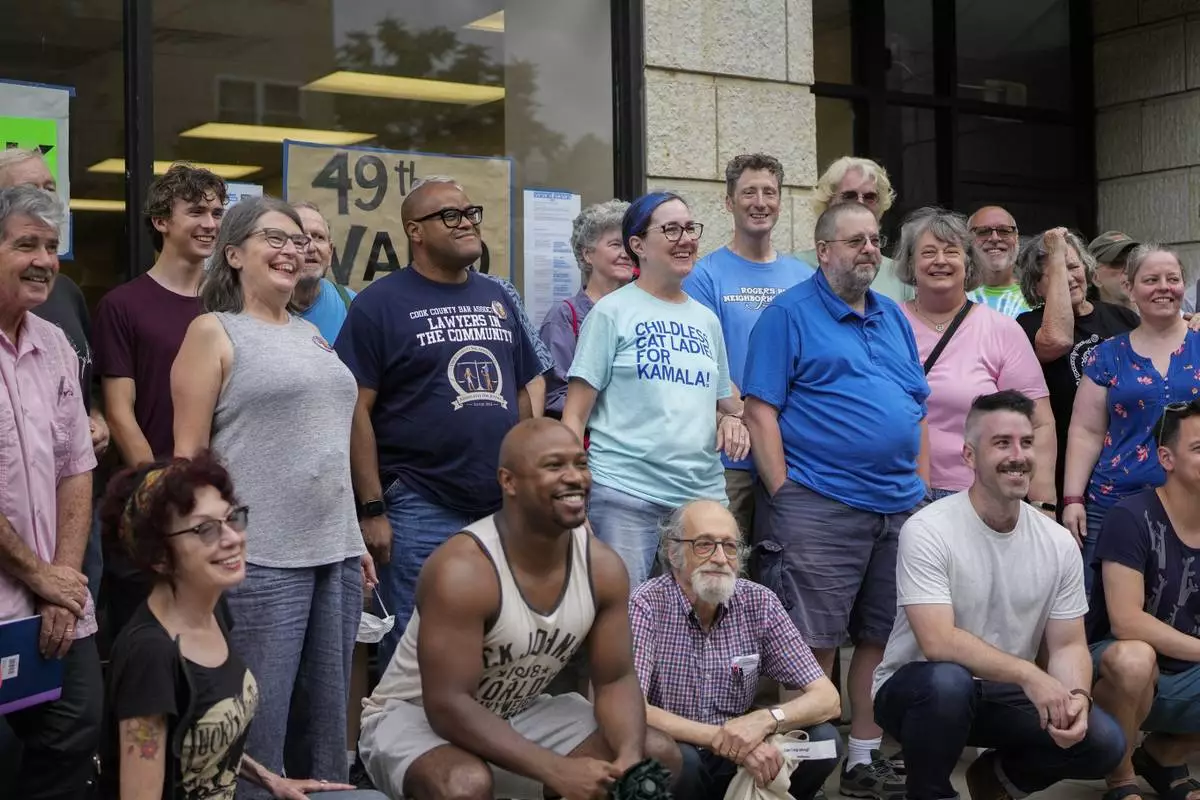
Illinois Rep. Kelly Cassidy, center, meets with volunteers as Democrats plan canvassing efforts in Wisconsin and Michigan as part of "Operation Swing State," Sunday, July 28, 2024, in Chicago. (AP Photo/Erin Hooley)

Illinois Rep. Kelly Cassidy, left, talks with visitors to the Glenwood Avenue Arts Festival, Quinn Kalman, 10, center, and Harrison Kalman, 6, left, Monday, Aug. 26, 2024, in Chicago. (AP Photo/Erin Hooley)
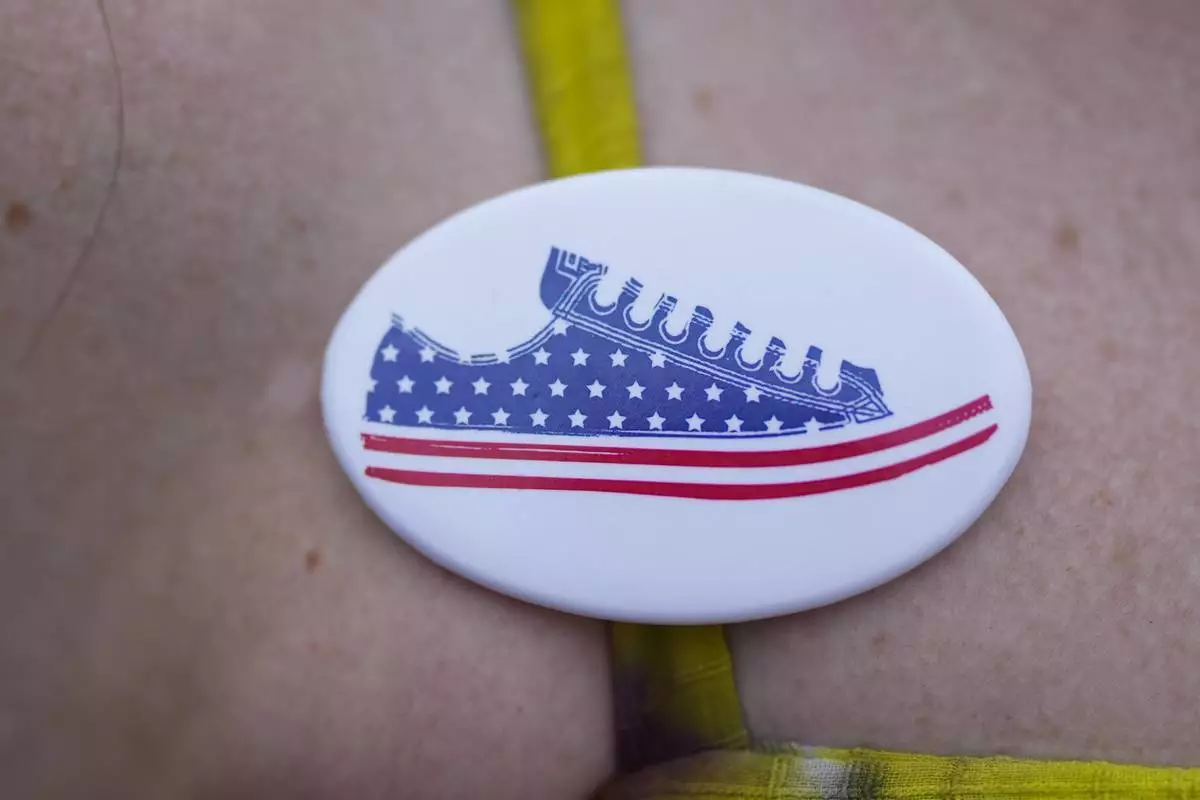
Illinois Rep. Kelly Cassidy wears a pin as she talks with visitors to the Glenwood Avenue Arts Festival about canvassing efforts for the Democratic Party, Monday, Aug. 26, 2024, in Chicago. (AP Photo/Erin Hooley)
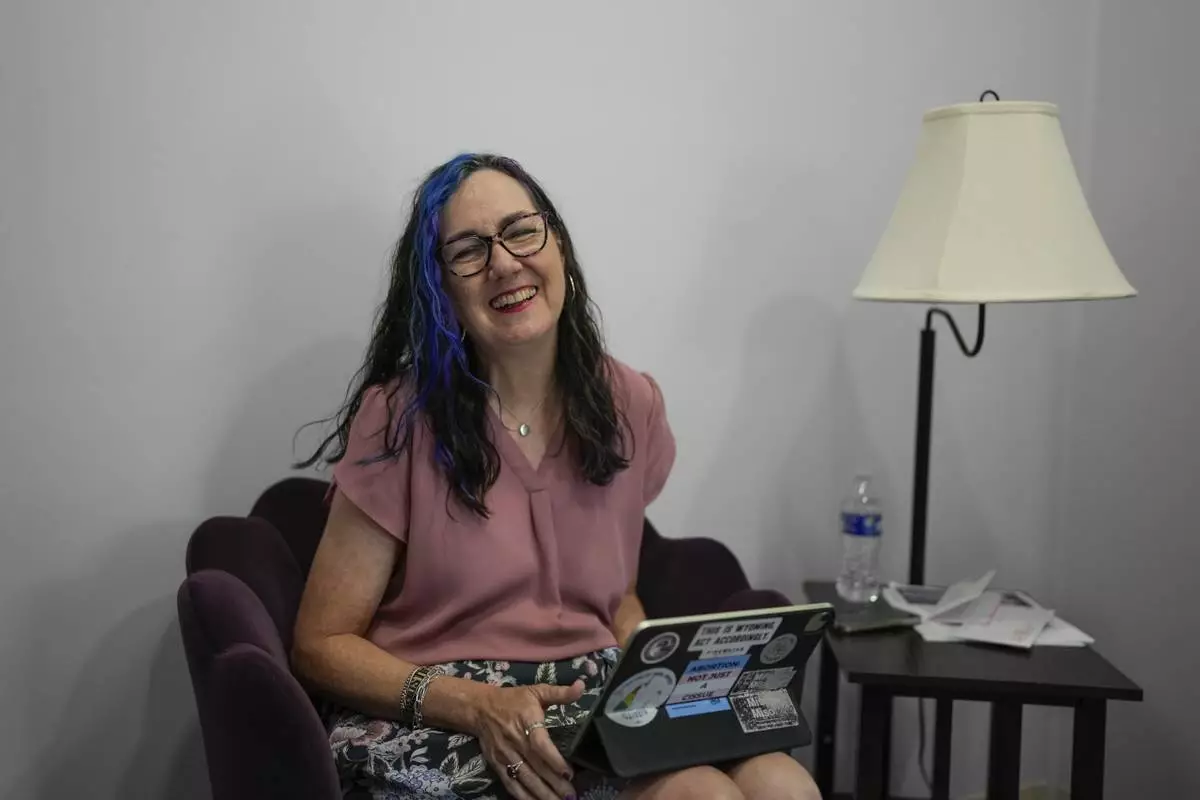
Illinois Rep. Kelly Cassidy works in her office, Sunday, July 28, 2024, in Chicago. (AP Photo/Erin Hooley)

Illinois Rep. Kelly Cassidy, right, with her spouse, Candace Gingrich, left, talks with visitors to the Glenwood Avenue Arts Festival about canvassing efforts for the Democratic Party, Monday, Aug. 26, 2024, in Chicago. (AP Photo/Erin Hooley)

Illinois Rep. Kelly Cassidy meets with volunteers as Democrats plan canvassing efforts in Wisconsin and Michigan as part of "Operation Swing State," Sunday, July 28, 2024, in Chicago. (AP Photo/Erin Hooley)

Illinois Rep. Kelly Cassidy talks with visitors to the Glenwood Avenue Arts Festival about canvassing efforts for the Democratic Party, Monday, Aug. 26, 2024, in Chicago. (AP Photo/Erin Hooley)















